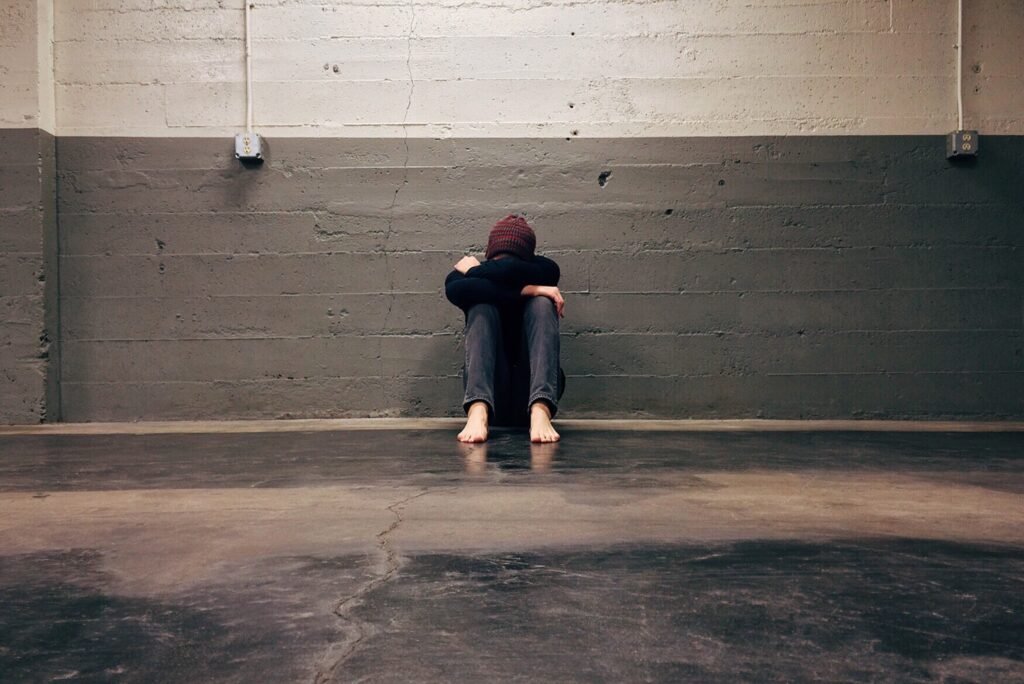The statements “I don’t feel like eating,” “I detest you,” and “No one loves me” are just a few that anxious kids frequently say. What additional words or behaviors might youngsters use to describe their anxiety?
Adults now experience anxiety and panic attacks on a regular basis, but kids can also experience same psychological issues.
Children, on the other hand, aren’t even conscious that anything is wrong, thus they aren’t even aware that they should seek assistance.
In light of this, Melissa Griffing, a child therapist, created a video in which she discusses the warning signals of anxiety in young children.
The video that mother-of-two Melissa, 33, posted on TikTok has already received over 1.3 million views.
In the video, Melissa makes note of the fact that when kids are frightened, they frequently repeat particular phrases. However, the issue is that parents hardly ever make the connection between these expressions and the disease.

Melissa also shared some of the phrases that parents should pay attention to if the child says them very often:
1. My stomach hurts.
2. I don’t want to go to school.
3. I don’t feel like eating.
4. I hate you.
5. What if…
6. I feel like going to the bathroom again.
7. I can’t sleep.
8. I don’t know.
9. My legs hurt.
10. I just want to stay with you.
11. No one wants to talk to me at school.
12. Nobody loves me.
13. My hands hurt.
14. I think I’m sick.
15. I don’t like…
“Children frequently don’t comprehend their anxiety or worry. Instead, they display signs. They keep saying things like, “My head hurts,” or “My stomach hurts.”
These are all means of avoiding the anxiety-inducing situations. All of these are phrases that anxious children or their parents frequently use, “Apparently, Melissa told BuzzFeed.
Melissa provided some additional videos with guidance for parents who see these symptoms in their kids:
“Recognizing that children suffer anxiety is the first step in helping them cope with it and understand what they feel when they feel that way,” says a child psychologist.
Melissa draws attention to certain actions that may also be signs of anxiety:
“There are many signs of anxiety. The “fight or flight” reflex is frequently triggered in young children. A 3, 4, or 5-year-old youngster will start screaming, sobbing, kicking, or running away when they are anxious.”
According to Melissa, older kids may also exhibit other symptoms including physical discomfort, self-isolation and withdrawal, or even unpleasant behavior.
“The body’s reaction to anxiety can occasionally be described as “freezing.” It’s possible that a child who seems uninterested and lethargic to you is actually crippled by anxiety and tension.”
Melissa notes that a youngster may repeat any of the aforementioned expressions without necessarily having worry.
These words and phrases must be combined with additional symptoms in order to diagnose anxiety.
Parents should watch for symptoms like irritation, difficulty concentrating, stiffness in the muscles, and difficulty sleeping.”
Melissa counsels parents to never downplay a child’s issues, no matter how little they may appear to be.
“It’s critical for parents to understand that youngsters see the concerns they have as being significant. Children have not yet experienced having to worry about things like paying the rent, politics, or any other issues that adults worry about.
In any case, when a kid is experiencing typical teenage drama and you think it’s not that big of a deal, keep in mind that the issue is big for him since he hasn’t experienced it before.
So, pay attention to him, be compassionate toward him, and assist him in solving the issue.